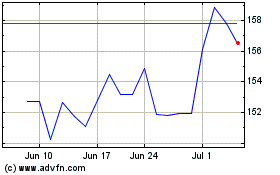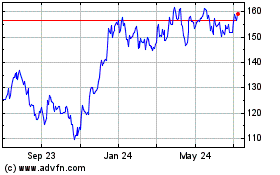Foreclosure Reviews Could Cost Banks In More Than One Way
October 08 2010 - 3:59PM
Dow Jones News
The longer that U.S. banks place a moratorium on home
foreclosures, the higher the risk they might suffer financial costs
in addition to the political pain they already feel.
Bank of America Corp. (BAC) said Friday it would review its
foreclosure documents in "all fifty states" and "stop foreclosure
sales until our assessment has been satisfactorily completed."
Brian Moynihan, the chief executive of Bank of America, the
nation's biggest bank by assets and deposits, told the National
Press Club Friday the Charlotte bank hasn't found problems in its
foreclosure process, but wanted to "clear the air" with its halt to
foreclosure sales.
Bank of America, J.P. Morgan Chase & Co. (JPM), and Ally
Financial Inc. last week postponed foreclosures in 23 states
because of foreclosure documents signed by staff who did not review
those documents. PNC Financial Services Group Inc. (PNC) said it
"is reviewing its mortgage servicing procedures to ensure these
comply with applicable law," a spokesman said Friday.
Eventually the banks will foreclose on nearly all the
properties. In many cases owners have already left their home or
been evicted. But there are legal and administrative costs related
to delayed foreclosures.
The delays probably won't hurt banks' mortgage originations,
which are driven mainly by interest rates rather than service
levels.
But for banks that have to publicly defend their foreclosure
procedures, the issue is a political hot potato. To the public,
already inflamed by government bailouts and a debate over bank
fees, it's one more instance of banks treating their customers
badly.
For some banks, the bad publicity, said David Trone, an analyst
with JPM Securities LLC., might hurt "deposits and ongoing
relationships with customers."
There may also be a broader economic impact from the slowdown in
foreclosure sales: "It adds a level of uncertainty that prevents"
the banks involved "from making new loans" until the banks hold the
capital they hope to recover from foreclosure sales, Trone
said.
However, the direct hit to the profit of the banks involved is
unlikely to be material, "unless it drags on for 12 to 24 months,"
said Gerard Cassidy, an analyst with RBC Capital Markets.
Few of the reviews of foreclosure documents that banks have
ordered will result in an actual reversals of the foreclosures.
"The banks should have already written down the credit," Mike
Mayo of CLSA wrote in a research note Thursday--though the ratio of
loans that are classified as unlikely to be paid back "will remain
inflated for a significant period."
There is some legal risk. Judges might harden their position
against banks once the foreclosure documents are resubmitted;
lawyers have to be paid. Some judges might throw the foreclosures
out, Mayo said.
There is also the cost to the bank that has to keep the house
longer than expected--as a rule of thumb, those cost can be about
1% of the value of the house per month. There are the
administrative costs of reviewing the foreclosure documents.
All this could shave "a few cents" off quarterly earnings, Trone
estimated. But the longer the issue drags along, and the more
severe the political backlash to foreclosure overall, the higher
those costs will eventually be.
-By Matthias Rieker, Dow Jones Newswires; 212-416-2471;
matthias.rieker@dowjones.com
PNC Financial Services (NYSE:PNC)
Historical Stock Chart
From Jul 2024 to Aug 2024

PNC Financial Services (NYSE:PNC)
Historical Stock Chart
From Aug 2023 to Aug 2024
